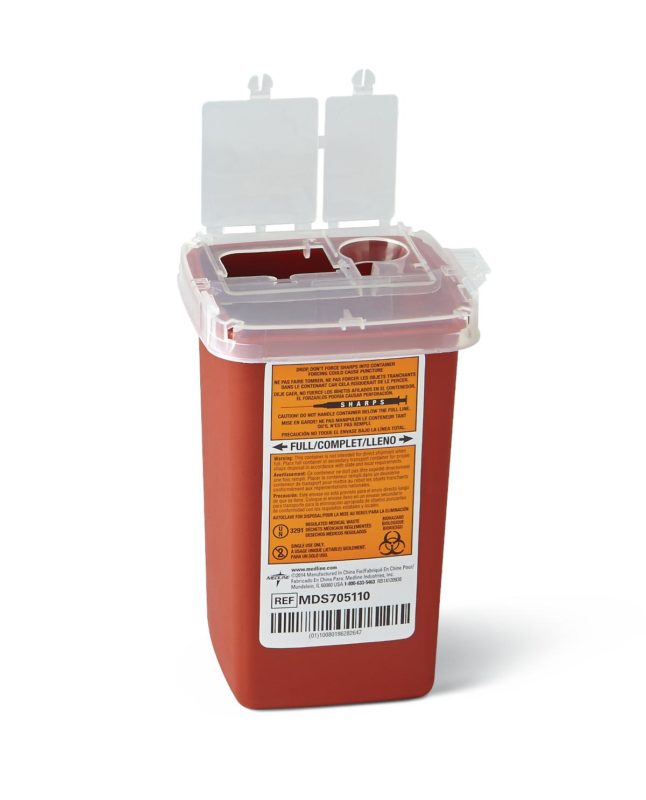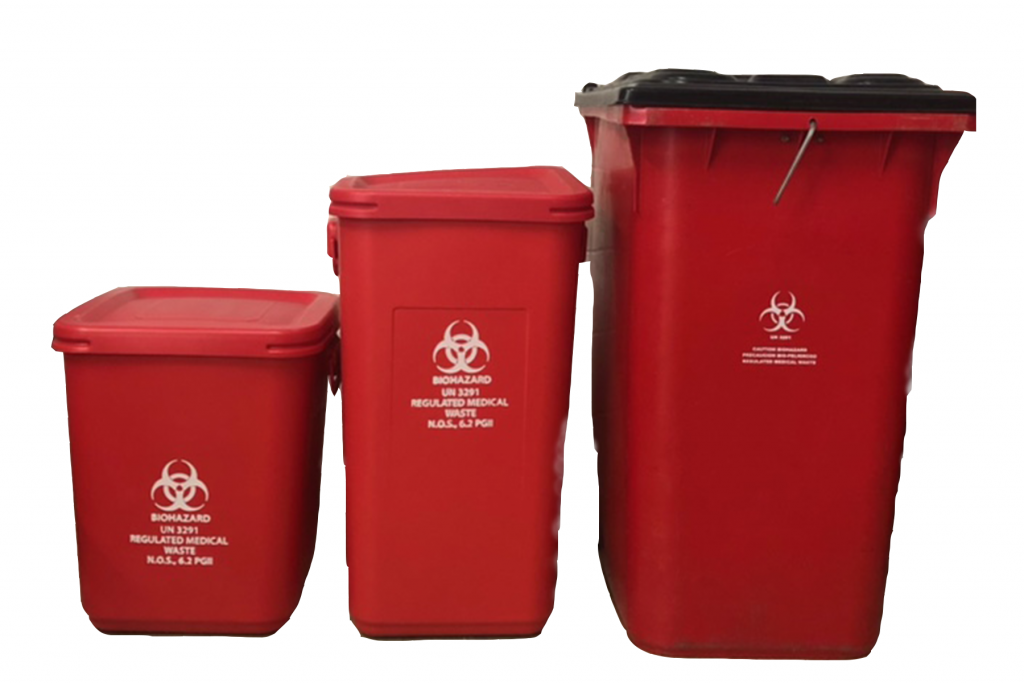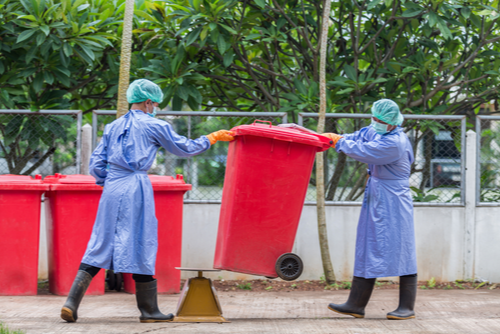Remain Ahead of Laws: Professional Suggestions on Medical Waste Disposal
In a globe where the medical care market is constantly advancing, it is critical for clinical facilities to remain ahead of regulations when it comes to the appropriate disposal of medical waste. From recognizing the different categories of clinical waste to executing the appropriate collection and segregation methods, this conversation will supply actionable tips and useful insights to assist facilities stay in advance of policies in the ever-changing landscape of clinical waste disposal.
Comprehending Clinical Waste Categories
Understanding clinical waste categories is necessary for proper disposal and monitoring in healthcare centers. Clinical waste refers to any kind of waste generated by health care tasks that may present a threat to public health and wellness or the setting. It is important to classify medical waste precisely to guarantee its risk-free handling, transportation, disposal, and therapy.
There are several classifications of clinical waste that healthcare facilities require to be acquainted with. One of the most common classifications consist of transmittable waste, pathological waste, sharps waste, pharmaceutical waste, and chemical waste. Each group has specific guidelines and policies for its appropriate monitoring and disposal.
Pathological waste refers to human tissues, organs, or body components that call for unique handling and disposal. Pharmaceutical waste makes up expired, extra, or infected medicines that need careful handling and disposal.
Staying Up-To-Date With Regulatory Changes
Remaining existing with regulative modifications is important for healthcare facilities to make certain conformity and appropriate management of clinical waste disposal. medical waste removal services. With regulations regularly advancing, it is crucial for health care facilities to remain updated to avoid penalties, penalties, and potential injury to the atmosphere and public health
To remain ahead of regulatory modifications, healthcare centers ought to develop a system for tracking and tracking updates. This can be done by subscribing to regulative e-newsletters, going to workshops and meetings, and actively taking part in industry organizations. Additionally, centers should mark a staff participant or team in charge of staying notified and sharing info to pertinent stakeholders.
Regular interaction with regulatory companies is additionally essential. Medical care facilities ought to develop relationships with regional, state, and government agencies to ensure they know any modifications in laws that may affect their waste monitoring practices. This can be done with normal conferences, participation in public comment durations, and aggressive engagement with regulative companies.
In addition, health care facilities must consider partnering with waste monitoring companies that concentrate on medical garbage disposal (medical waste disposal services with WasteX). These business are usually well-versed in the newest guidelines and can give advice and support to guarantee compliance
Executing Appropriate Collection and Segregation Techniques
To efficiently handle clinical garbage disposal, healthcare facilities must establish proper collection and segregation methods based on regulatory guidelines. Implementing these methods ensures the safe handling and disposal of potentially hazardous products, shields the setting, and decreases the threat of injuries and infections to healthcare employees and the basic public.
Appropriate collection and segregation methods entail using assigned containers and identifying systems. Healthcare facilities need to give plainly labeled containers for different sorts of clinical waste, such as sharps, contagious waste, pharmaceutical waste, and non-hazardous waste. These containers should be color-coded and plainly significant to prevent confusion and advertise simple identification.
Additionally, medical care facilities should educate their personnel on the appropriate treatments for gathering and segregating clinical waste. This includes educating them on the various medical waste disposal services with WasteX kinds of waste, the suitable containers to make use of, and the value of complying with policies and standards. Routine training sessions and refresher programs should be performed to guarantee that employee continue to be updated on ideal methods.
Furthermore, health care facilities must develop a system for routine collection and disposal of clinical waste. This may entail partnering with certified waste monitoring companies that concentrate on medical waste disposal. These firms will make sure that the collected waste is delivered and gotten rid of in conformity with regulatory demands.
Picking the Right Disposal Techniques

Incineration is just one of one of the most usual and reliable methods for getting rid of specific kinds of medical waste, such as pathological waste and sharps. It includes the controlled combustion of waste at heats, decreasing it to ash. Nevertheless, incineration can release damaging contaminants into the air and contribute to air pollution.

Chemical therapy entails the usage of chemicals to decontaminate and counteract the waste. Microwave treatment uses microwave energy to heat and disinfect the waste.
Guaranteeing Compliance With Paperwork and Training
After thoroughly thinking about the proper disposal techniques for medical waste, health care facilities should guarantee compliance with regulations and minimize environmental impact by implementing reliable documents and training treatments. This step is important in preserving a lasting and risk-free environment for both healthcare employees and the public.

Medical care employees that take care of clinical waste needs to obtain ideal training on waste partition, taking care of, and disposal treatments. By supplying thorough training, medical care centers can equip their personnel to make informed decisions and minimize the threat of inappropriate waste disposal.
Verdict
To conclude, staying ahead of policies in clinical garbage disposal is critical for medical care centers. medical waste removal near me. Comprehending the different categories of clinical waste, remaining updated with governing adjustments, carrying out appropriate collection and segregation approaches, selecting the suitable disposal approaches, and making sure compliance via documents and training are all vital steps. By adhering to these standards, healthcare organizations can successfully get rid of and take care of of medical waste in a secure and accountable manner
From recognizing the different categories Get More Information of clinical waste to implementing the ideal collection and segregation approaches, this discussion will certainly provide beneficial insights and workable suggestions to assist centers remain in advance of guidelines in the ever-changing landscape of clinical waste disposal. - medical waste disposal services with WasteX
The most usual categories include contagious waste, pathological waste, sharps waste, pharmaceutical waste, and chemical waste. Health care facilities must give plainly classified containers for various kinds of clinical waste, such as sharps, transmittable waste, pharmaceutical waste, and non-hazardous waste. Healthcare facilities should establish an extensive system to tape-record and track all elements of medical waste disposal, including types of waste generated, quantities, and disposal methods used. Healthcare employees that take care of clinical waste needs to obtain ideal training on waste partition, managing, and disposal treatments.